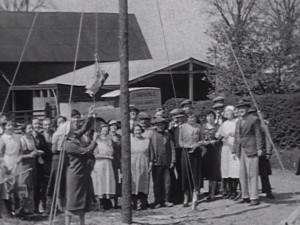
A film showing the Brooke family and their Jubilee Celebrations.
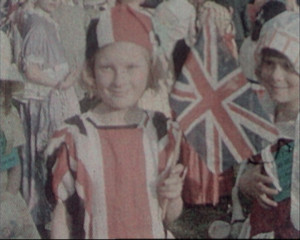
An industrial documentary about Tobacco farming.
"doc. didattico"/educational documentary
"doc. turistico"/tourism documentary
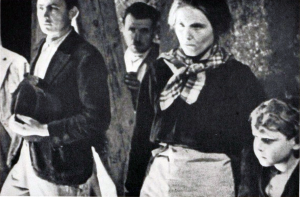
"a sogg. lungh. norm."/Fiction feature film
"Sacrificarsi, realizzato da Arrigo Colombo; aiuto direttore Ottorino Caramazza; scenografia di Brando Savelli, operatore Elio Luxardo. Come il precedente film di Arrigo Colombo, Alta Tensione, anche questo Sacrificarsi e a carattere episodico; il centro dell'azione e stavolta una miniera, che e stata completamente ricostruita nelle proporzioni necessarie allo svolgimento della trama. Il sacrificio è quello di un operaio; e il momento in cui lo trasportano con le gambe penzoloni dal carrello, fuori della galleria, di fronte agli sguardi della moglie e del figlioletto, e il momento più felice del film, in cui si riconosce che ormai Colombo ha raggiunto alcune qualità che per taluni aspetti possono essere definite professionali; Colombo ·mostra in più punti la sua abilita, e questa forse lo tradisce talora, specie quando egli perde il filo del racconto principale per illustrare motivi di contorno; ma in ciò forse egli e stato indotto dalla mancanza di un movente drammatico del soggetto che fosse giustificato da uno schema più complesso. I personaggi sono ben descritti e sopratutto piace il bambino con quel suo sfarfallio in contrasto col lavoro delta miniera."
—Il Ventuno 28 (Review of the G.U.F. of Venice), May 1935
"Self-Sacrifice (Sacrificarsi), directed by Arrigo Colombo; assistant director Ottorino Caramazza; set design by Brando Savelli; cameraman Elio Luxardo. Like Arrigo Colombo's previous film, High Tension, Making Sacrifices is also episodic in nature; the center of action this time is a mine, which has been completely rebuilt to proportions necessary for the development of the plot. The sacrifice is that of a worker, and the moment in which he is transported with his legs dangling from the trolley, out of the tunnel, in front of the eyes of his wife and small son, is the happiest moment of the film, in which we recognize that Colombo has attained certain qualities that in some respects can be called professional; Colombo shows in several points his ability, and this perhaps betrays him sometimes, especially when he loses the thread of the main story to elaborate the backdrop and contextual events, but to this perhaps he was tempted to do so is due to the lack of a dramatic incident in the plot that would have justified the more complex scheme. The characters are well-described and especially likable is the child with his flickering that contrasts with the work of the mine."
—Il Ventuno 28 (Review of the G.U.F. of Venice), May 1935
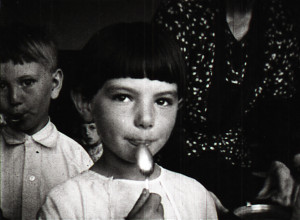
A short film about the children and activities at the Milton Road infant school located in Cambridge.
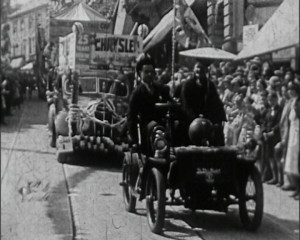
A film about King George V's Jubilee filmed in Norwich.
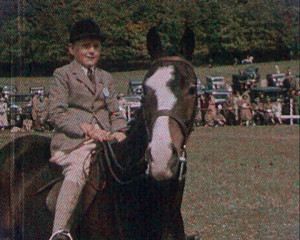
"The film includes shots of the departure of the riders in the early morning mist; the Master of Fox Hounds, Stanley Barratt, leading foxhounds by foot over a wooden bridge; riders and hounds patrolling a covert at Juniper Hill; the training of young hounds after a kill; horses and hounds assembling after the cubbing hunt. Scenes … include the meet in the early morning mist; the hounds by the wooden bridge; the location of the kill. A small crowd watches as a fox that has gone to ground is dug out; after the kill the fox’s body is thrown in the air for the hounds and a rider trains the young hounds. The films reference the same location, crowd (including two dogs, which are not foxhounds) and the same rider training the young hounds. Dufaycolor film of scenes from the Great Missenden Show of 1935. Shots include footage of some of the competitors in a junior show jumping event and the presentation of the prizes afterwards" (EAFA Database).
"Kawakita’s Akogare was based on the film footage that he shot on 8mm reversal film at the locations where Gosho Heinosuke was filming his own commercial studio film titled Akogare... his film was not a behind-the-scenes footage of Gosho’s commercial production but rather a stand-alone narrative film that Kawakita himself shot and edited." - Noriko Morisue, "Filming the Everyday: History, Theory, and Aesthetics of Amateur Cinema in Interwar and Wartime Japan" (Yale University: PhD Dissertation, 2020): 158.
Total Pages: 299